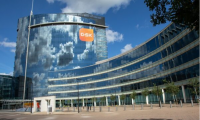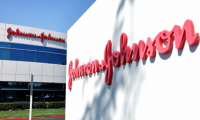-
FDA Calls for New Safety Warning for the Class of CAR T Cancer Therapies
- Source: drugdu
- 94
- January 25, 2024
-
Lilly’s Jaypirca tipped to capture 60% of BTK leukemia market, leaving AstraZeneca, BeiGene in the dust
- Source: https://www.pharma.com/marketing/lillys-jaypirca-tipped-capture-60-btk-leukemia-market-leaving-astrazeneca-beigene-dust
- 159
- January 24, 2024
-
Comanche raises $75m to develop preeclampsia therapy
- Source: drugdu
- 98
- January 22, 2024
-
Bayer’s Cost-Cutting Plans Take Aim at Multiple Layers of Management
- Source: drugdu
- 119
- January 20, 2024
-
J&J, AZ/Daiichi Sankyo cancer therapies lead Clarivate’s annual rundown of notable new meds
- Source: drugdu
- 152
- January 19, 2024
-
CAR-T hype faces infrastructure reality check
- Source: drugdu
- 304
- January 17, 2024
-
J&J’s Megadyne restricts use of electrodes over burn risk, triggering Class I FDA notice
- Source: drugdu
- 177
- January 11, 2024
-
At JPM, Top GSK Cancer Executive Talks Drug Targets and Oncology Strategy
- Source: drugdu
- 120
- January 11, 2024
-
J&J Joins the Cancer ADC Dealmaking Spree With $2B Ambrx Acquisition
- Source: drugdu
- 136
- January 10, 2024
-
As cancer players jump head-first into ADC field, Novartis CEO explains how he’s resisted the temptation
- Source: drugdu
- 90
- January 10, 2024
your submission has already been received.
OK
Subscribe
Please enter a valid Email address!
Submit
The most relevant industry news & insight will be sent to you every two weeks.













